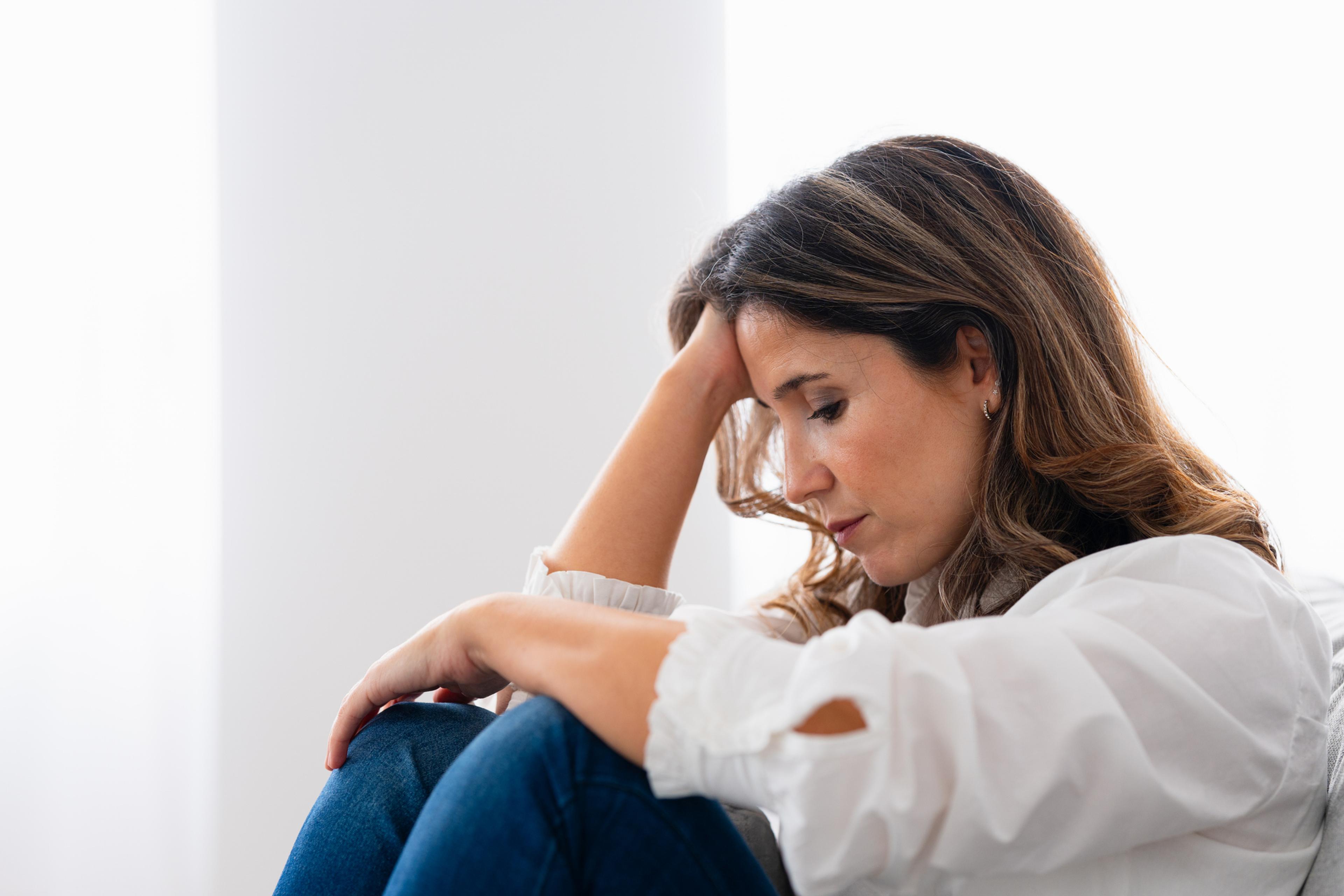How Does the Menstrual Cycle Affect Mental Health?

Lindsay Knake
| 4 min read
Lindsay Knake is a brand journalist for Blue Cross B...

Key Takeaways
- Up to 90% of women experience premenstrual symptoms, including mood changes.
- Hormonal shifts during the menstrual cycle, especially post-ovulation drops in estrogen, progesterone and serotonin, can contribute to mental health symptoms such as depression and anxiety.
- Lifestyle changes, medications and mental health support can help manage PMS and PMDD, but it may require time to find the right treatment.
Mood swings and irritability are common symptoms of menstruation, according to the National Institutes of Health. As many as 90% of women experience premenstrual symptoms such as mood changes.
But for some women, these symptoms can interfere with daily life. Let’s look at the relationship between menstruation and mental health, including syndromes and disorders that can worsen symptoms of irritability, anxiety and depression.
How menstruation affects mental health
The menstrual cycle is the 21-to-35-day cycle when a woman’s body goes through hormonal changes that prepare the body for possible pregnancy, according to the Cleveland Clinic. Unless you become pregnant, the uterus sheds the lining and the cycle starts again. The menstrual period is often accompanied by symptoms such as cramping, fatigue and emotional changes. In the week or two prior to your period, you may experience several mild to severe symptoms known as premenstrual syndrome (PMS).
A less common but more severe version of PMS is premenstrual dysphoric disorder (PMDD). This disorder interferes with your daily life. Symptoms of the two conditions are similar but worse in PMDD. Emotional symptoms of PMS and PMDD include:
- Mood swings and irritability
- Depression
- Anxiety
- Crying spells
- Panic attacks
- Sleeping too much or too little
- Difficulty focusing
At times, women may miss work, school or other daily activities because of PMS or PMDD. There is a well-established bidirectional relationship between mental health and the menstrual cycle. Women who deal with a lot of stress or have depression, anxiety or a family history of these disorders are more likely to also have PMS, according to the Cleveland Clinic.
The hormonal changes through the menstrual cycle may be the cause of PMS and PMDD. After ovulation, estrogen and progesterone fall significantly unless you are pregnant, according to the U.S. Office on Women’s Health. Serotonin levels, which affect mood and mental health, also fluctuate through the menstrual cycle and may affect some women’s mental health. However, more research is needed on hormonal and neurotransmitter levels and mental health.
How to manage menstruation and mental health
Every woman has her own experience with premenstrual symptoms, and those can fluctuate month-to-month and year to year. Women in their 30s tend to have PMS more than women of other ages.
Healthy lifestyle habits and medications can work for mild to moderate PMS symptoms. Try to:
- Get enough sleep
- Exercise 150 minutes a week
- Eat a healthy diet of fruit and vegetables, whole grains, lean meats or legumes
- Limit excess sodium, sugar, caffeine and alcohol in the two weeks before your period
- Use over-the-counter pain relievers for cramps, backaches and headaches
For more serious symptoms of PMS and PMDD talk to your primary care provider (PCP). Treatment options may include:
- Hormonal contraceptives, although they can make emotional symptoms worse for some women
- Antidepressants such as selective serotonin reuptake inhibitors (SSRIs) for anxiety or depression
- Anti-anxiety medications
Given the complexity of hormonal influences, it may take time to determine an optimal management plan. Keep track of your symptoms throughout each cycle to assist your PCP with treatments.
You may also consider talking to a mental health professional for anxiety and depression. Blue Cross Blue Shield of Michigan and Blue Care Network can also help members find an in-network mental health professional by calling behavioral health access lines:
- PPO: Behavioral Health Access Line | 1-800-762-2382
A free and confidential resource that’s just a call away when you need immediate support. Behavioral health professionals answer, 24/7.
- HMO: Behavioral Health Access Line | 1-800-482-5982
Connect with a behavioral health clinician if you need help finding a mental health or substance use provider. Behavioral health clinicians are available for routine assistance from 8 a.m. to 5 p.m., Monday through Friday. For urgent concerns after hours, clinicians are also available 24 hours a day, seven days a week.
Learn more about mental health and options you have as a member to seek help at bcbsm.com/mentalhealth.
Image: Getty Images
Related:





